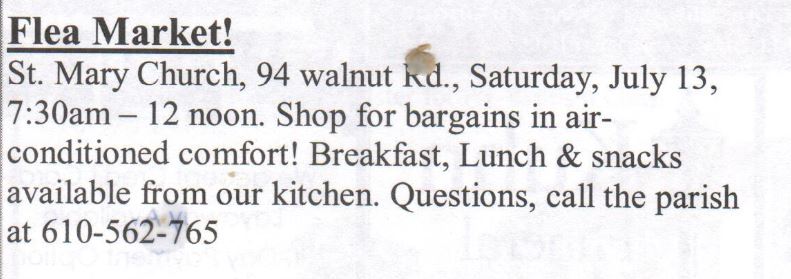
Meditation: Matthew 10:1-7
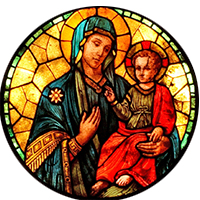
14th Week in Ordinary Time
Make this proclamation: “The Kingdom of heaven is at hand.” (Matthew 10:7)
What a tall order! Jesus summons his twelve apostles so that he can send them out to proclaim that, through him, the kingdom of God has come. And just as Jesus has done, he wants his disciples to speak boldly and with great confidence and authority.
Put yourself in the shoes of the apostles and imagine how they must have felt. Up until this point, Jesus had been guiding them, teaching them, and showing them by his example how to share the good news of his kingdom. Now they will have to navigate the way themselves. But Jesus doesn’t say, “I know this sounds pretty intimidating, so don’t worry if you don’t feel ready yet. You don’t have to go if you don’t want to.” He has prepared them, and he has every confidence that they can do what he asks. And so he issues them a challenge rather than making a suggestion.
Did you know that Jesus wants to do the same thing for you? It doesn’t matter if you don’t feel particularly gifted or highly trained for whatever job he has given you. Whether he is asking you to teach young children about the faith, share a Scripture passage with someone who is struggling, or join a parish prison ministry, you won’t be doing it on your own. Like the first disciples, Jesus is sending you out with his authority (Matthew 10:1). Through his Holy Spirit, he will give you all the gifts you need.
Of course, you’ll probably make some mistakes and fumbles along the way. You may fumble your words, or you may need to learn to take time to listen. But that’s okay. If your limitations don’t bother Jesus, you shouldn’t let them bother you. The history of the Church is filled with the stories of very human characters who managed, in spite of themselves, to proclaim God’s word and do his work in the world.
So when you feel God asking you to do something you don’t feel equipped for, don’t let the fear of failure or inadequacy stop you. Step out in faith and do your best—because your best is always good enough for the Lord!
“Jesus, thank you for placing your confidence in me!”
Genesis 41:55-57; 42:5-7, 17-24
Psalm 33:2-3, 10-11, 18-19
Meditation: Genesis 32:23-33
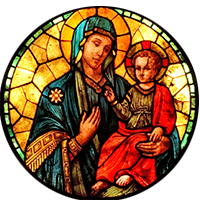
Saint Augustine Zhao Rong, Priest, and Companions, Martyrs (Optional Memorial)
Jacob was left there alone. Then some man wrestled with him until the break of dawn. (Genesis 32:25)
What a strange story! Jacob’s midnight wrangle with “some man” could be a tale right out of a suspense novel: furious wrestling with a mysterious figure in the darkness, no one to help him, and no answers to be had. We don’t know from the passage what the point of contention was between Jacob and this figure, but certainly it was vitally important to Jacob. Even though he must have been exhausted from moving all his family and possessions, Jacob grappled with him until very early in the morning.
Do you ever feel as if you are in a similar wrestling match? And with God, no less? You want answers to questions that don’t have obvious solutions: What do you want for my life, Lord? What do I do about this dire diagnosis? How do I raise my special-needs child or care for my ailing parents? You keep asking, but you may feel like Jacob: alone, in the dark, and waiting for answers that never seem to appear.
If that’s the case, don’t give up. Keep wrestling! Thank the Lord for all the ways in which he has cared for you in the past. Tell him about your current fears and hesitations. Trust that he is in the situation and will not abandon you to figure things out on your own. He may be answering you with silence so that you come to the answer yourself. Or he may answer you with another question. One way or another, however, he will show you a way forward.
In every situation, behind every burden or question, you have this assurance: God loves you and is committed to you. In his own time, he will bring to light what seems hidden in the darkness. Though Jacob asked, the man did not tell him his name. Yet in the silence, as Jacob continued to wrestle, he came to the answer himself: he had contended with God. And as a result, he received his life as a gift, a blessing from the One who wrestled with him.
“I believe you love me, Lord. Help me to keep wrestling for the answers I need.”
Psalm 17:1-3, 6-8, 15
Matthew 9:32-38
Meditation: Genesis 28:10-22
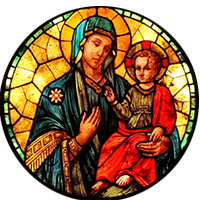
14th Week in Ordinary Time<
This is nothing else but . . . the gateway to heaven! (Genesis 28:17)
Did you know that there are gateways to heaven all over the world? These places are made sacred because God is present there in a unique way or because something special happened there. Think of the Church of the Holy Sepulchre in Jerusalem, where Jesus died and rose. Or think of Fatima and Lourdes, where Mary appeared, or Assisi, where St. Francis lived. The divine power present in those places is so great that the very site becomes holy ground.
Now, not all sacred spots are as notable as Assisi or Lourdes. Today’s first reading tells how Jacob’s encounter with God in the harsh environment of the desert made that spot holy. As Jacob lay his head down on a rock, God came to him in a dream and promised to honor the covenant he had made with Abraham. This experience, along with his vision of a ladder to the skies, led Jacob to call the place a “gateway to heaven” (Genesis 28:17).
Jacob’s experience shows us that any place can become sacred—even your home. As you develop the habit of coming to Jesus in prayer and worship in your home, you make it your own special sacred space. It takes on new meaning beause Jesus becomes present to you right there where you live.
Of course, your home is a place of such familiarity and distraction that you might sometimes find it hard to sense God’s presence there. That’s why it’s helpful to carve out a special place just for him, even if it’s just a quiet corner somewhere. Keep an icon or a crucifix nearby, along with your Bible. Then, when you come to your prayer corner each day, imagine that Jesus is there with you. You could even place a chair opposite you, a special space for him to sit with you. As you sit across from that chair, picture Jesus looking at you with love. What does it feel like when he leans toward you to listen to you? What is he saying to you in response?
Your home, whether it is a large mansion, a cramped apartment, a cozy cottage, or even a hospital room or prison cell, can become sacred. You can find your own gateway to heaven.
“Lord, thank you for accepting my invitation to come into my home each day.”
Psalm 91:1-4, 14-15
Matthew 9:18-26
Meditation: Galatians 6:14-18
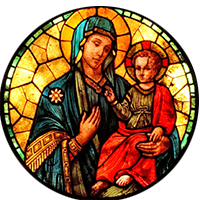
14th Sunday in Ordinary Time
May I never boast except in the cross. (Galatians 6:14)
The church in Galatia was struggling. The people there had gladly welcomed Paul’s simple message: Jesus Christ died for their sins, rose for their salvation, and was now inviting them to embrace that salvation through faith and baptism. But after Paul left Galatia, other people arrived with a more complicated message: if you don’t embrace all of Jewish law, especially circumcision, your salvation is incomplete. You have to become a Jewish convert as well as a Christian.
When Paul got wind of this, he fired off a harsh letter of rebuke. “Are you so stupid?” he asked. “It is those who have faith who are children of Abraham,” not just those who are circumcised (Galatians 3:3, 7).
For Paul, the issue went to the heart of the gospel message. If the Galatians embraced circumcision, they would be perpetuating the old division between Jew and Gentile that Jesus had come to destroy. Not only that, but they would be feeding the lie that Jesus belongs only to a certain class or type of people. “There is neither Jew nor Greek,” Paul told them, “there is neither slave nor free person, there is not male and female; for you are all one in Christ Jesus” (Galatians 3:28).
This is one of the most powerful truths of our faith: in Christ, every division is wiped out. Being a Christian is not a matter of deciding who is “in” and who is “out.” Neither are there different “levels” or “classes” of believers. There’s only everybody. We are all equally sinners who are equally loved by God and forgiven by the cross. The question is whether we will accept this salvation and let God’s love heal our divided hearts and change our divisive actions.
Paul never wanted to “boast” about anything that made him feel special or better than other people (Galatians 6:14). The gift of God’s merciful, liberating, transforming love outshone everything else. This love is available to you today at Mass. Come and taste it. Let it break down every division in your heart.
“Jesus, reduce me to love!”
Isaiah 66:10-14
Psalm 66:1-7, 16, 20
Luke 10:1-12, 17-20
Meditation: Matthew 9:9-13
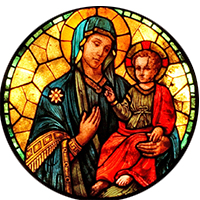
Saint Elizabeth of Portugal (Optional Memorial)
Follow me. (Matthew 9:9)
Imagine yourself in Matthew’s shoes today. You’ve heard stories about this Jesus, a miracle worker who people believe might be the Messiah. He opens the eyes of the blind, speaks about God’s forgiveness, and treats the poor and outcast with kindness. Now he’s coming toward you, and at first it seems as if he is going to walk right by you.
But then he stops, looks right at you, and says, “Follow me.” You’re caught off guard: Why would he say this to me? I’ve never even met him before.
Other questions begin to flood your mind: Why me? What about all my sins and failings? Surely Jesus must know who I am and all that I’ve done. If nothing else, he would know me by the company I keep.
But as you look into his eyes, you begin to feel peaceful. You’re not exactly sure where the peace is coming from, but you realize that you don’t need all the answers before you say yes to Jesus. There’s something about this man—you just trust him.
And it’s funny, because as soon as you realize you don’t need answers, they begin to form in your mind: Jesus is choosing me because he loves me. Yes, he knows all the things I’ve done. How I have looked to my own needs above others. How I have hurt people by my words and actions. And yet still he is asking me to join him.
He must be inviting me to follow him because he knows I can change. He says his Father is full of mercy and that if I repent and believe his message, I can actually enter the kingdom of God. When I first heard that, I didn’t believe him. How could God forgive me? But now I do believe him. Now I know that I can become like him: loving, kind, and generous. I know that I can join him on his mission to reach out to other people just like me.
Yes, I’m ready to turn away from my old life. I want to follow Jesus. I want to give my life to him.
“Jesus, just as you invited Matthew to follow you, you are also inviting me. I renew my yes to you.”
Genesis 23:1-4, 19; 24:1-8, 62-67
Psalm 106:1-5
Meditation: Genesis 22:1-19
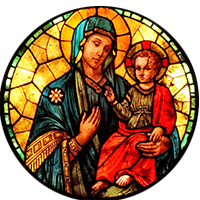
Independence Day (USA) (Optional Memorial)
God put Abraham to the test. (Genesis 22:1)
What sort of God asks for human sacrifice? The famous “testing of Abraham” is a troubling account—that is, until we learn that God never intended for him to actually sacrifice Isaac. Throughout the story, God was giving Abraham opportunities to deepen his trust and faith. And Abraham passed the tests, all of them, with flying colors.
From the outset, Abraham deferred to God’s direction. He didn’t hesitate in following God’s command, even though it meant sacrificing what was most precious to him.
The next test of their relationship arrived swiftly when God chose not to provide a map or tell Abraham exactly where to go. All he said was Head toward Moriah, and I’ll tell you where to stop. It’s the sort of navigational help that most people dread! Still, Abraham went along with it. And sure enough, after three days of wandering, God showed him the place.
Another part of God’s test was psychological. Would Abraham remain steadfast, even when heading toward his son’s death? Yes, he would. Abraham assured Isaac of God’s faithfulness, even when Isaac asked him the heart-wrenching question “Where is the sheep for the burnt offering?” (Genesis 22:7).
In all of these moments, we see why Abraham is called the “father of faith” (see Romans 4:16). But it would also be appropriate to call him a father withgreat faith. He was an example to Isaac, and he’s an example for anyone trying to follow God.
Although not as dramatic as Abraham’s story, certain aspects of our devotion to God might seem just as absurd to outside observers: getting up early on a Sunday to go to Mass, for example. Following the Church’s teaching on sexual morality, trying to teach our children virtues that go against the prevailing philosophies of the world, giving up our freedom to care for an ailing parent—all of these put our faith in God on display.
If you do any of these things, take heart. You are also a father or mother with great faith. Just as God looked kindly on Abraham’s faith during that difficult journey, he sees and honors your sacrifices. And as he led Abraham, he will lead you into an even closer relationship of trust with him.
“Lord, thank you for seeing my faith. Help me to trust you more.”
Psalm 115:1-6, 8-9
Matthew 9:1-8
Meditation: Ephesians 2:19-22
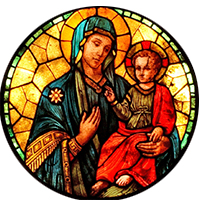
Saint Thomas, Apostle (Feast)
You are . . . members of the household of God. (Ephesians 2:19)
Members of the same household as saints like Thomas? It might seem like a stretch, especially when you think of how much the saints accomplished for Christ. You might feel that your life falls far short of such a high standard. But remember, as Thomas’ own story tells us, the saints were not perfect. Look at the apostles, the “foundation” Paul says we are built upon: Peter misunderstood Jesus and denied him. All of them except John abandoned him. Thomas himself proclaimed he wouldn’t believe Jesus had risen until he had probed the wounds with his own hands.
But that is not the end of their stories. Jesus gave Peter the chance to proclaim his love three times, mirroring his threefold denial. Then Peter went on to lead the early Church. Jesus appeared to Thomas and let him see his wounds. Once Thomas saw the resurrected Jesus, he made one of the most powerful proclamations of faith you will hear in the New Testament: “My Lord and my God!” (John 20:28). From there, he went on to proclaim the gospel all the way to India!
These apostles were no less members of the household of God when they struggled with unbelief or weakness than when they became courageous heroes of the faith. This means that you are no less a member of the household of God when you are painfully aware of your own weakness and unbelief. In fact, that’s a great place to start because the more you know how much you need Jesus, the more open you will be to meeting him and receiving his grace. Look at Thomas: Jesus did not deny him the chance to touch his wounds. But he didn’t stop there. He called Thomas further, beyond his weakness and into deeper faith.
You are a member of God’s household, and in this household, the saints are your big brothers and sisters. They have so much to teach you, especially through their stories about how God accepted them and continued to work in them. You can be confident that God will accept and work with you too.
“Jesus, thank you for bringing me into your household of faith.”
Psalm 117:1-2
John 20:24-29
Meditation: Matthew 8:23-27
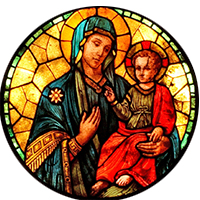
13th Week in Ordinary Time
What sort of man is this? (Matthew 8:27)
In today’s Gospel, Jesus and his disciples get caught in a storm at sea. Not just a little cloudburst, mind you, but a “violent storm” (Matthew 8:24). The word that Matthew uses to describe the storm comes from the Greek seismos, literally, “earthquake.”
Matthew uses seismos four times in his Gospel, and each time, it signals a deeper revelation about the identity of Jesus. It’s as if Matthew were saying, “Pay attention! God is unveiling something important here!” Let’s see what God is showing us through these earthquakes.
In today’s passage, Jesus is fast asleep in the boat amid the tumult while the disciples panic. When they rouse him, it takes only one command to calm the wind and the waves. Matthew is telling us that Jesus is no ordinary rabbi. He is Lord over creation, even when he appears to be asleep. Surely this comforted Matthew’s first-century readers when persecution came their way.
In Matthew 24:7, Jesus describes his Second Coming by saying that earthquakes will precede it as a sign that he is near. Then, after the earthquake comes the revelation: all mankind “will see the Son of Man coming upon the clouds of heaven” (24:30). Here God reveals that Jesus is the powerful Son of Man (Daniel 7:13), the Lord who will reign over all of history.
Matthew’s next reference to an earthquake occurs during Jesus’ passion at his death. In chapter 27, when Jesus gave up his spirit, “the earth quaked, rocks were split, tombs were opened, and the bodies of many saints who had fallen asleep were raised” (27:51-52). This time the revelation comes through the Roman centurion and his men: “When they saw the earthquake . . . , they said, ‘Truly, this was the Son of God!’” (27:54).
Matthew’s final earthquake occurs at Jesus’ resurrection: “There was a great earthquake; for an angel of the Lord descended from heaven, approached, rolled back the stone, and sat upon it” (28:2) What is this revelation? Jesus is risen. He is God, sovereign over death itself.
Lord over creation. Lord over history. Victor over death. True Son of God. Surely Jesus can help you in your personal “earthquakes”!
“Jesus, I trust that you will help me find you whenever I feel shaken.”
Genesis 19:15-29
Psalm 26:2-3, 9-12
WANT MORE? SUBSCRIBE AN
Meditation: Genesis 18:16-33

Saint Junípero Serra, Priest (Optional Memorial)
Shall I hide from Abraham what I am about to do? (Genesis 18:17)
Have you found a way to study the Bible that works for you? Some people practice the Benedictine method lectio divina. Others leaf through academic commentaries. Still others are tempted to lament, “God does ‘hide’ his wisdom from us everyday people (Genesis 18:17). Leave the Bible studying for the theologians!”
One simple, straightforward way to study Scripture involves asking just two questions. You don’t have to be a mystic, and you don’t have to spend a lot of time at it. Let’s try it.
Here’s the first question: Lord, how are you revealing yourself in this passage? At the foundation of this question is a belief that God wants to speak to us through his word. According to the Catechism, “In the sacred books, the Father who is in heaven comes lovingly to meet his children, and talks with them” (104). That sounds like today’s first reading from Genesis, doesn’t it? Far from hiding, God reveals himself to Abraham and shares his plans with him.
How would you answer the first question? One potential answer is that God is revealing his mercy in the first reading. He was willing to endure a profusion of sins for the sake of just a handful of innocents. Usually you’ll find more than one answer to the question, especially if you reread the passage slowly.
Here’s the second question: Lord, in light of this passage, how should I live?Sometimes passages clearly state the answer. In today’s Gospel, for example, Jesus announces, “Follow me” (Matthew 8:22). Other passages are different—like today’s first reading from Genesis. They don’t have a clear to-do message. However, they often contain hints. For instance, let’s say you were startled by Abraham’s audacity in speaking to God. Maybe God wants you to be bolder in prayer or to be blunt with him about how you’re feeling.
This method is one way to walk and talk with the Lord. Remember, studying the Bible isn’t just reserved for saints and mystics. So what is God saying to you today?
“Lord, I want to hear you speak in the Scriptures.”
Psalm 103:1-4, 8-11
Matthew 8:18-22

